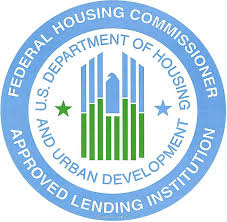 One of the seemingly “mysterious” aspects of home equity conversion mortgages (Federal Housing Administration-insured reverse mortgages) is the determination of how much money the borrower will get. Three items go into the calculation: the age of the youngest borrower, the interest rate, and the maximum claim amount (the value of the home or FHA lending limit of $679,650, whichever is lower).
One of the seemingly “mysterious” aspects of home equity conversion mortgages (Federal Housing Administration-insured reverse mortgages) is the determination of how much money the borrower will get. Three items go into the calculation: the age of the youngest borrower, the interest rate, and the maximum claim amount (the value of the home or FHA lending limit of $679,650, whichever is lower).
FHA periodically issues what are called “principal limit factors.” These are the percentages that FHA will lend based on the age of the borrower and the interest rate. The latest factors went into effect on Oct. 2, 2017. For a 62-year-old borrower, which is the minimum age to get a reverse mortgage, and at a rate of 5 percent, the factor is .410. The maximum claim amount is multiplied by this factor to get the amount the borrower will get before the closing costs are subtracted. So if the house appraised for $300,000, the borrower will get $123,000. At age 80, the factor is .534, so the starting point is $160,200.
“Now for the latest wrinkle. FHA issued a new rule as Mortgagee Letter 2018-6 to make sure that it’s receiving “an accurate determination of property value and property condition.” According to the new rule that went into effect for new FHA case numbers ordered on or after Oct. 1, 2018, FHA will now review all appraisals to see if they meet the administration’s collateral risk assessment. If it does not pass this test, they will require that a second appraisal be ordered from a different appraiser. Lenders can order it from the same appraisal management company.
The lower of the two valuations will be used for calculating the maximum claim amount for the loan. FHA plans to have an automated system to handle the collateral risk assessments by Dec. 1 of this year. This will reduce the time for the assessments to be completed. This entire new protocol will be evaluated after six and nine months, and then FHA will make a decision as to it’s effectiveness.
I still believe that home equity conversion mortgages (HECMs) can be a valuable tool to help seniors stay in their homes as long as possible, be a source of supplemental cash flow, or help establish a line of credit for future emergencies. There is just another step in the process.








